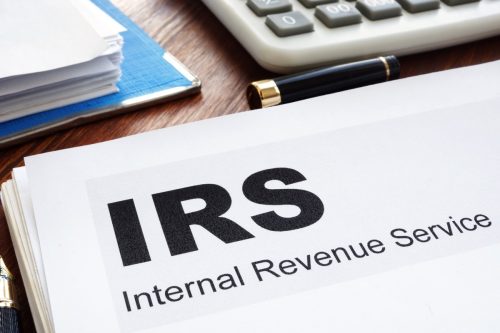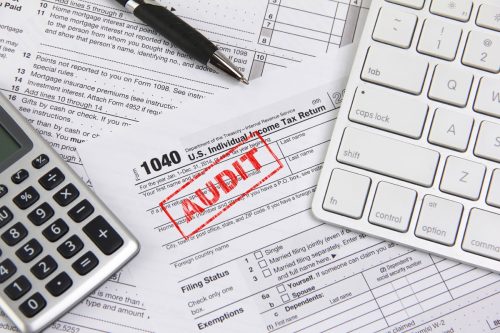This Deduction Could Get You Flagged for an Audit by the IRS, Experts Warn

The tax filing process can be overwhelming. Keeping track of W2s, previous tax returns, and paystubs make it difficult to know where to start. If you’ve decided to file on your own, without the help of an accountant or a tax preparation service, you’ll want to be sure your calculations and deductions are spot-on. We’re all eager to avoid a dreaded audit by the Internal Revenue Service (IRS)—which can come with associated penalties and fines. Read on to learn about one deduction that could land you on the audit list.
RELATED: The IRS Warns You Must Do This by April 18—And It’s Not This Year’s Taxes.
Unusually large deductions for charitable donations could trigger an audit.

Many people donate to charity as a humanitarian act aimed at bettering the lives of others. Whether you are donating to your local church or a larger nonprofit organization, it feels good to give back. Another added benefit comes in the form of a tax break, but there are certain rules taxpayers need to follow to avoid being audited.
In general, the IRS states that taxpayers are limited in the amount they can deduct. The agency generally advises that charitable cash contributions may be deducted up to 50 percent of their adjusted gross income (AGI). This applies to all public charities, private operating foundations, and private foundations that meet certain requirements. For other private foundations, such as fraternal societies, cemetery organizations, and veterans organizations, there is a 3o percent limitation.
Abnormal donations amounts would be those that exceed the amount that would be expected of someone else in your income profile. As reported by CNBC, if you earn $90,000 each year and write off $60,000 in charitable deductions, it may cause the IRS to raise a red flag.
The IRS uses a statistical formula to select returns for audits.

The IRS develops “norms” for returns using software that evaluates a random sample. In conversation with CNBC, David Silversmith, CPA, certified financial planner and senior manager of PKF O’Connor Davies in New York, said the IRS calculates a score for each tax return, and higher scores indicate a higher risk for an audit.
According to Silversmith, using income level, the system determines appropriate ranges for deductions or credits. That means that if your write-offs fall outside of that range, your score could rise and you might be receiving audit notification in the mail.
Your return could also get flagged in the event a related return is being examined for audit. According to the IRS, this arises if your return involves issues with other taxpayers (like business partners or investors). Rest assured that the IRS does have an experienced auditor review flagged returns, which are then either accepted or—in the event of something questionable—forwarded to an examination group.
RELATED: For more up-to-date information, sign up for our daily newsletter.
Here’s how to avoid getting flagged for charitable deductions on your return.

The IRS offers a list of tips for deducting charitable donations, which outlines different requirements for different donation. No matter the amount, you are required to maintain a record of the transaction—so be sure to save those receipts.
Pay attention to cash, check, or other monetary donations. For amounts less than $250, you’ll need a bank record, payroll deduction, or written communication from the charitable organization. To deduct for donations of $250 or greater on your return, the written acknowledgment is required. If the amount you’re deducting for all noncash contributions (think securities, vehicles, collectibles, art, etc.) is more than $500, you’ll have to fill out an additional form.
There are other write-offs you should pay attention to.

While well-intentioned donations to charity could become an issue, claiming too many deductions is the most common reason taxpayers get audited.
One deduction that could face extra scrutiny is for a home office, which must be regularly and exclusively used for business, as well as the primary location for business. Sarah York, an enrolled agent with the IRS and an in-house tax expert, previously told Best Life that the home office deduction is a “write-off that people tend to abuse.” So if your work-from-home setup seems excessive, the IRS may ask for additional details.
Auto-based deductions can also prompt the IRS to take a deeper look, Crystal Stranger, the international tax director for GBS and author of The Small Business Tax Guide, previously told Best Life. “Claiming large amounts of auto expenses is a big red flag for getting audited, especially if there is hardly an income involved.” Some may be dismayed to learn that the deductions are only eligible for business, but this excludes community or other activities.
RELATED: The IRS Just Cautioned Taxpayers Against Doing This.